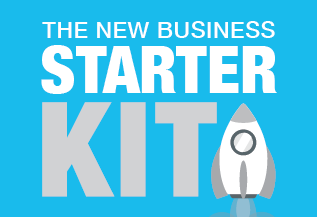Sustainability and your supply chain
Stay complaint and boost your brand value in 2023 with expert accounting support. Staying on top of environmental management is a growing concern for Australian businesses. With the right financial support? Sustainability can be good for business.
Sustainability is uppermost in mind for ethically conscious businesses and consumers. It’s also a regulatory issue with substantive government environmental compliance at both the Federal and state/territory level. The start of a new year is always a good time to take stock and review where your business is at.
Looking at the past 1 year, 3 years and 5 years can help identify areas for improvement. Especially in a post-pandemic period it’s time to review the processes and structures that were setup quickly or without the proper due diligence in a time of business interruption. Staying compliant is an ongoing battle, one that needs to be undertaken with the right expert advising you.
What are the legislative compliance measures for sustainability statements?
Sustainability reporting is currently voluntary, in Australia that is there is no forced standard of reporting, there has been strong interest from both the Australia Securities Exchange Limited (ASX) and the Australian Securities & Investments Commission (ASIC) on providing meaningful information around sustainability practices. Notably “greenwashing” is of major concern for both groups as investor and customer demand for sustainable products in the Australian market.
The Financial Stability Board's Task Force on Climate-related Financial Disclosures (TCFD) has a voluntary disclosure framework to assist in transitioning to future standards that may be set. The Australian Accounting Standards Board (the AASB) is currently consulting on the suitability of draft disclosure standards from the International Sustainability Standards Board.
Sustainability in your supply chain
One of the key areas to assess for sustainability is your own supply chain and processes. To ensure appropriate ESG compliance, businesses need to have a sustainability capability statement. Each link in the business chain needs to be understood and accounted for.
Conducting a sustainability supplier questionnaire can help ensure your suppliers are meeting your own sustainability compliance.
Ask the big questions:
- Do they provide a safe workplace for their staff?
- Are the products and processes implemented to create products sustainable?
- Does the supplier act in accordance with the Moderns Slavery Act 2018?
To establish a baseline of your businesses current environmental impact, you can start with an environmental audit. An audit is a great starting point to create your Environmental Management System (EMS).
Review your suppliers
The global pandemic caused unprecedented business disruption, with supply chain demands some of the most impacted areas of business. It’s possible that things might have been rushed during this period. Were some corners cut? Was a new supplier brought on in a hurry without the proper processes being put in place? Is there a chance you don’t know some aspects of your suppliers' own processes or contractors?
Setting aside any legal liability, there is also a brand reputation risk to doing business with suppliers found to be unethical. We only need to look at the boycotts on Russian goods as an example of consumers needing to feel heard through collective action. If you’re questioning how well you know your supplier (and their suppliers), this is the time to put them under the sustainability microscope.
Assess your supplier risk
Get to know your suppliers intimately through creating and distributing a supplier questionnaire. Are they a certified B-Corp? What is their Net Promoter Score? Although there are many existing Self-Assessment Questionnaires on environmental policy, it’s important to ensure any questions are tailored to your business needs.
An expert chartered accountant can offer guidance to help you accurately assess supplier risk, compliance and diversity. Aside from specific sustainability capability questions, it’s key that your business has a supplier risk management framework in place in the event that something goes astray. We all remember the Horsemeat scandal or when Nando’s famously ran out of chicken in the midst of the COVID-19 pandemic.
New Year’s Resolution: compliance, compliance, compliance
Supply chains are critical to the success of your business and ultimately their compliance is a major risk factor for your business.
Investing in the wisdom of a trusted chartered accountant gives you access to valuable expert advice and assurance knowing that your BAU and sustainability compliance is right on track for the new year. Now is the time to start scheduling time to take a closer look at your key suppliers and assess their sustainability compliance moving forward.
Not sure if you’re getting the right sustainability advice? Contact team at Upside Accounting for a confidential discussion.
Disclaimer:
The information is general in nature and is not personal advice. It does not take into account your needs, objectives or financial
situation. You should seek independent advice suitable to your circumstances.




